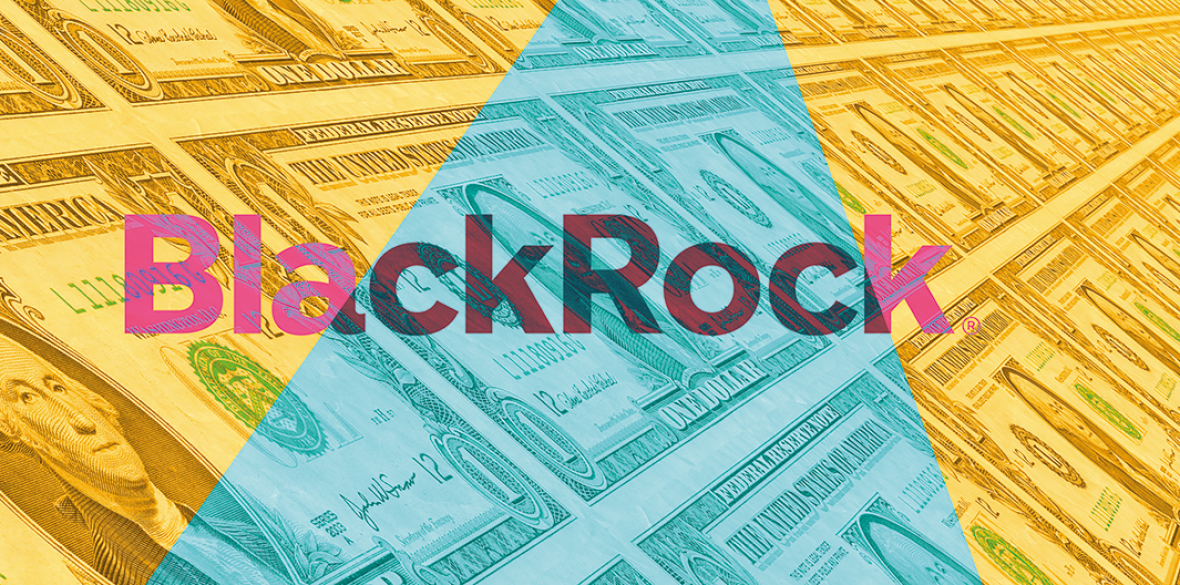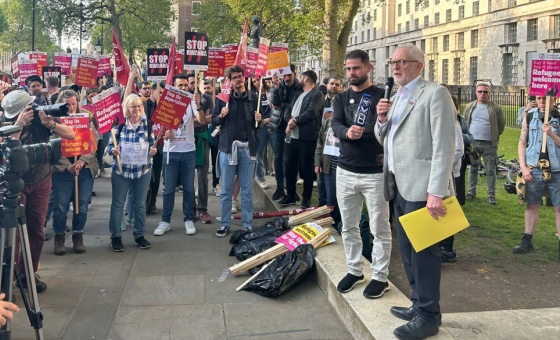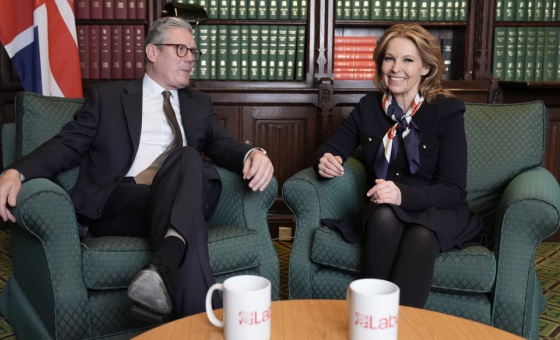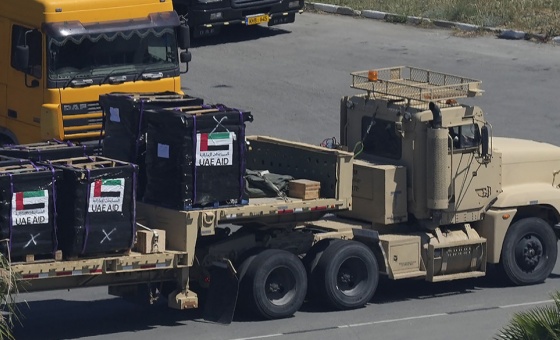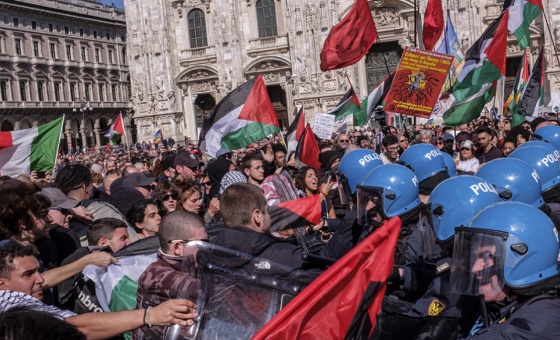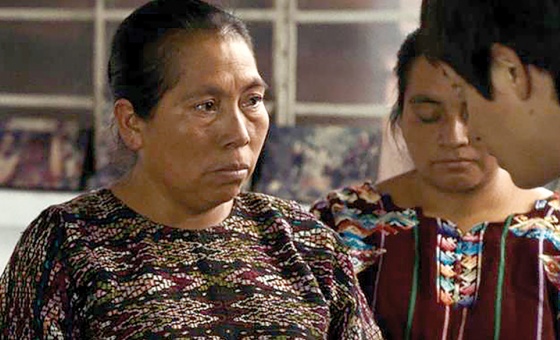This is the last article you can read this month
You can read more article this month
You can read more articles this month
Sorry your limit is up for this month
Reset on:
Please help support the Morning Star by subscribing here
EVER heard of Blackrock? Well, if you haven’t you certainly should find out more about it, because its activities affect almost everyone on the planet. It is the most powerful financial institution in the world.
BlackRock, Inc is a US multinational investment company. Founded in 1988 as a risk management and fixed income institutional asset manager, by 2022 BlackRock had become the world’s largest asset manager, with $10 trillion in assets.
In 2010, Ralph Schlosstein, the CEO of Evercore Partners and a BlackRock founder, called BlackRock “the most influential financial institution in the world.”
Today BlackRock operates globally with 70 offices in 30 countries, and clients in 100 countries. In 2014, The Economist said that BlackRock’s $4trn under management made it the “world’s biggest asset manager” and larger than the world’s largest bank, the Industrial and Commercial Bank of China. How did it get to this size?
With the big financial meltdown of 2008, the Obama government decided to outsource regulation and awarded BlackRock the contract to sort things out and save the US banking system from total collapse.
The US Federal Reserve allowed BlackRock to superintend the $130 billion-debt settlement of Bear Stearns, the global investment bank, and American International, a multinational insurance and financial institute.
BlackRock, virtually alone, decided which companies would be bailed out by the government and which allowed to go to the wall. It was provided with all the necessary inside information to do the job.
BlackRock grew both organically and by acquisition, and by 2009 it had become the world’s No 1 asset manager.
It was founded by a group of US financiers, including Larry Fink, Robert S Kapito, Susan Wagner and others, to provide institutional clients with asset management services from a risk management perspective.
Fink and Kapito both came from First Boston Bank where Fink and his team were pioneers in the mortgage-backed securities market in the United States.
During Fink’s tenure as head of First Boston it lost $100 million. By the end of 1999, BlackRock was managing $165bn in assets, and in 2021, US Senator Elizabeth Warren suggested that BlackRock should be designated “too big to fail.”
Although the company has faced criticism for worsening climate change (through its investments in fossil fuels), its close ties with the US Federal Reserve System during the Covid pandemic, for anti-competitive behaviour and its unprecedented investments in China, it remains unscathed and unregulated.
In December 2014 a BlackRock managing director in London was banned by the British Financial Conduct Authority for failing the “fit and proper” test, because he paid £43,000 to avoid prosecution for dodging train fares.
In 2014, the Sovereign Wealth Fund Institute reported that 65 per cent of BlackRock’s assets under management were made up of institutional investors. By June 30 2015, BlackRock had $4.721trn of assets under management.
It holds substantial shares in the German Kommerz and Deutsche banks, Goldman Sachs, HSBC, Bank of Ireland, Societe General of France, among others, making it the single largest shareholder in these institutions.
It has big holdings in the biggest German car manufacturers and many more big global companies. Barclays sold its Global Investors unit (BGI), to BlackRock for $13.5bn. BlackRock is the first global asset manager to receive consent from the Chinese government to start operations there.
The company invests the funds of its clients in numerous publicly traded companies, some of which compete with each other. However, it avoids falling under anti-monopoly regulation because it does not actually “own” the companies it invests in.
So, for instance, although it is the biggest investor in the BMW, Volkswagen and Ford companies, it does not own them outright, so nominally these companies are still in competition with each other, even though BlackRock wields considerable power within their boards of directors.
These companies also invest in BlackRock, so we have a circular investment system. Because of the size of BlackRock’s funds, the company frequently appears among the top shareholders of many companies, such as the technological giants Apple and Microsoft.
When large takeover transactions are planned, the US credit rating agency, Moody’s is often consulted to assess a company’s credit rating before bids are finalised.
However, BlackRock now has a substantial investment in Moody’s, so if BlackRock wishes to takeover or invest in a company, it will first consult a company it also owns to assess credit-worthiness. Not corruption perhaps but certainly a form of sharp practice.
BlackRock obtains its capital from the super-rich who remain anonymous. It also has numerous subsidiaries and almost all its financial holdings are registered in tax havens, thus avoiding huge tax bills and oversight.
BlackRock, by its very nature, does not rely for its profits solely on dividends but on its ability to buy and sell investments. Because it owns, or “manages the assets” of its own investors, who through BlackRock have substantial shares in so many other companies, those investments and the risk values can easily be manipulated.
It controls global financial movements and if shares in a particular company fall or rise it doesn’t matter because BlackRock speculates precisely on those up and down movements.
It doesn’t only have Moody’s in its portfolio but also one of the biggest financial data processing companies, too, so it is best placed to know exactly what is happening in global markets.
It also has shareholdings in the world’s stock markets. It avoids any regulatory controls, such as they are, because it is not classed as a bank or investment company but as an “asset management company,” in official speak, “a shadow bank.”
In May 2019, BlackRock was criticised for the environmental impact of its holdings. It is counted among the top three shareholders in every big oil company except Total, and it is among the top 10 shareholders in seven of the 10 biggest coal producers.
As of December 2018, BlackRock was the world’s largest investor in coal plant developers, holding shares worth $11bn among 56 coal plant developers and BlackRock owned more oil, gas, and thermal coal reserves than any other investor.
Environmental groups launched a campaign in September 2018 claiming that BlackRock is the “biggest driver of climate destruction on the planet.”
There is no easy answer on how we can bring such a global giga-firm under control but if it is not done, the consequences for democratic accountability and the future of the planet are dire.

